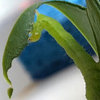What ate my millkweeds?
hebdemnobad
14 years ago
Featured Answer
Sort by:Oldest
Comments (18)
jrcagle
14 years agoRelated Professionals
Prairie Ridge Landscape Architects & Landscape Designers · Forest City Landscape Architects & Landscape Designers · Brentwood Landscape Contractors · Annandale Landscape Contractors · Saint George Landscape Contractors · Tacoma Landscape Contractors · East Norriton Landscape Contractors · Candler-McAfee Fence Contractors · Bethesda Fence Contractors · Crofton Fence Contractors · Parkland Fence Contractors · Brighton Window Contractors · Marietta Window Contractors · Muttontown Window Contractors · San Ramon Window Contractorshebdemnobad
14 years agoericwi
14 years agojrcagle
14 years agohebdemnobad
14 years agoMissSherry
14 years agoericwi
14 years agojrcagle
14 years agoterrene
14 years agocynandjon
14 years agooctober17
14 years agohebdemnobad
14 years agobrindlebutt
14 years agomechelle_m
14 years agotracey_nj6
14 years agoms_minnamouse
14 years agoSandra Shelton
5 years ago
More Discussions








hebdemnobadOriginal Author